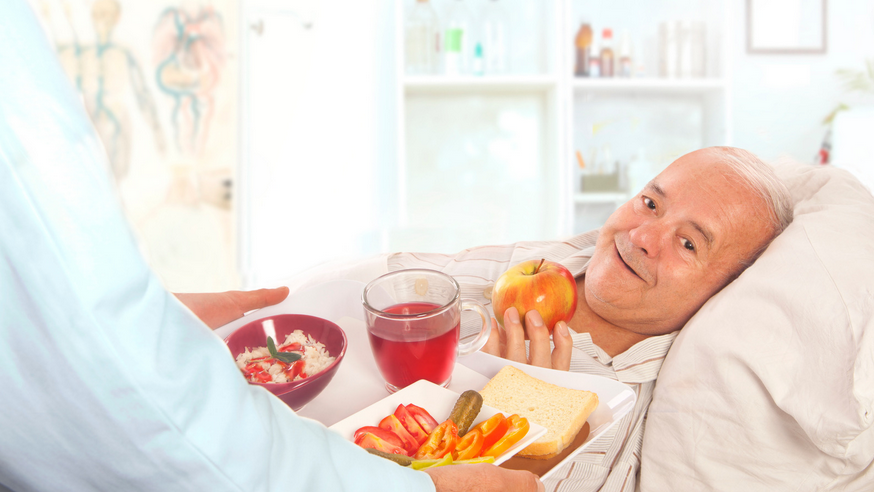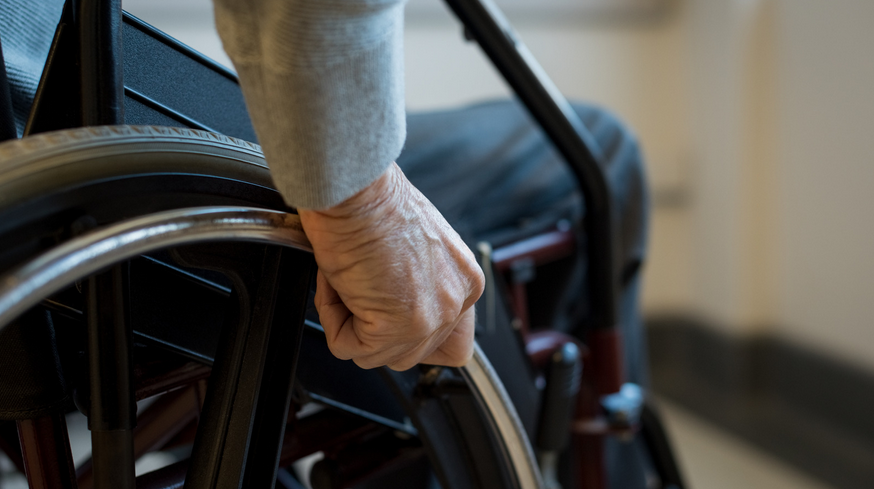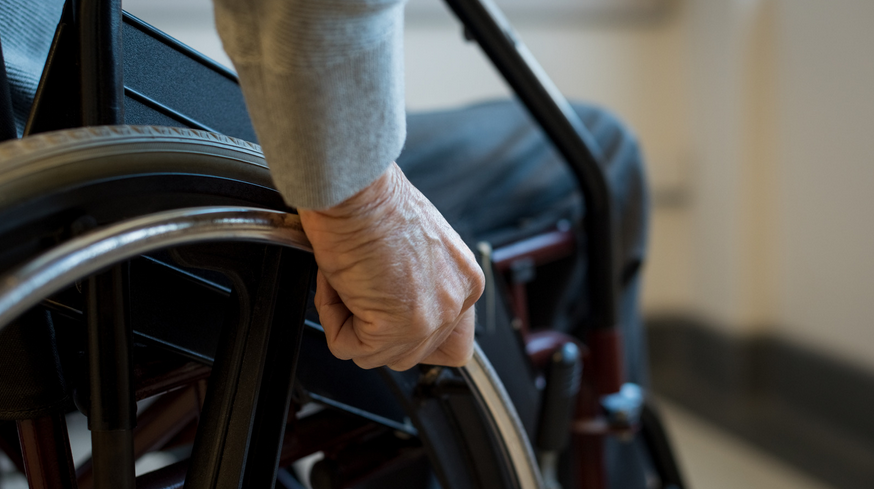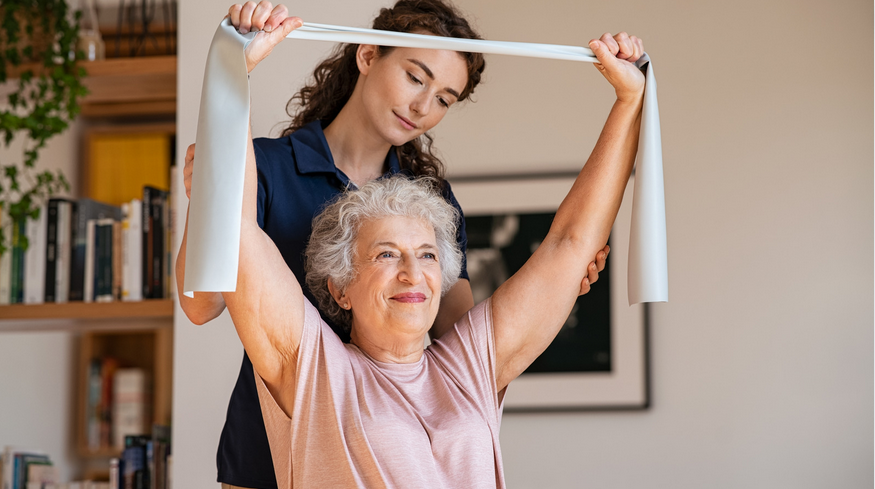Helping Elderly Loved Ones Recover from Surgery: Tips and Strategies

As our loved ones age, it is inevitable that they will face health challenges requiring medical intervention, and surgery is one such intervention. While surgery can be life-saving, it can also be a challenging experience for the elderly, particularly during recovery. Post-surgery complications can range from mild to severe, and it’s important for caregivers to understand how to properly care for their elderly loved ones during this time.
Taking care of elderly loved ones after surgery requires patience, understanding, and a willingness to adjust to their unique needs. With the right tips and strategies, caregivers can help ensure their loved ones recover smoothly and successfully. This article will explore helpful tips and strategies for supporting elderly loved ones after surgery, from preparing the home environment to managing medications and preventing complications. Whether you’re a family member or a professional caregiver, these strategies can help make the recovery process as comfortable and stress-free as possible for your elderly loved one.
Tips for Helping Elderly Loved Ones Recover from Surgery
1. Talk to Your Senior’s Medical Team
When seniors undergo surgery, one of the most vital steps you can take is to communicate with a medical team. This team will include surgeons, nurses, and other healthcare professionals involved in your loved one’s care. They will have vital information about your loved one’s condition, medication requirements, and post-surgery recovery plan.
One crucial aspect of communicating with your senior’s medical team is clearly understanding their medication list. This includes the names of all medications, dosages, and special instructions. It’s also a good idea to get the contact details of your elderly loved one’s care team in case you need to contact them in case of an emergency.
Once you have reviewed the recovery plan, don’t hesitate to ask additional questions you may have about enhancing senior care. Some questions to consider include whether there are any restrictions on activity or diet, what signs and symptoms to watch for, and when to follow up with the medical team. Building a strong relationship with your loved one’s medical team can help you feel confident in your caregiving role and ensure your loved one receives the best care.
2. Make a List of Essential Items Your Senior Will Require

When surgery is complete, and your elderly loved one is given the go signal to return home, they may require additional items to support their recovery. While medications are often a top priority, there are several other essential items that you should consider to make your loved one’s recovery as comfortable and stress-free as possible.
- Your loved one may require a wheelchair or a hospital bed to support mobility and rest.
- Compression socks and leg braces may be necessary to promote healthy blood flow and provide support to the affected area.
Reducing stress is also crucial during the recovery process. Talk with the doctors to determine which items are essential for senior recovery and make a list of these items. This will help ensure everything is in place before the senior returns home and can help ease the transition.
3. Prepare the Home for Your Seniors Return
Returning home after a hospital stay can be overwhelming for seniors. However, you can help ease the transition by preparing their home before they arrive. You can create a comfortable and safe environment that promotes healing and recovery with a few simple steps.
Here are some tips on how to prepare the home for your senior’s return:
- Remove any tripping hazards: Remove any rugs, loose cords, or clutter that may pose a tripping hazard to your elderly loved one. Secure any loose carpeting and ensure that walkways are clear and well-lit.
- Make necessary modifications to the bathroom: Consider installing grab bars near the toilet and in the shower or bathtub to provide support and prevent falls. If your loved one has difficulty stepping over the tub, consider installing a shower seat or a walk-in bathtub.
- Create a comfortable and accessible sleeping area: Make sure the bed is at a height that is easy to get in and out of, and consider purchasing a bed rail to provide extra support. Ensure that the room is well-ventilated and has adequate lighting.
- Arrange for any necessary equipment: If your loved one requires any medical equipment such as a wheelchair, walker, or hospital bed, make sure it is ready and waiting for them when they arrive home. Ensure that any necessary medications are also readily available.
- Plan food choices ahead of time: Consider preparing meals for seniors ahead of time or purchasing pre-made meals that are easy to heat up. This can help ensure your loved one gets proper nutrition without worrying about cooking or grocery shopping.
4. Take Care of Your Seniors’ Mental Health

Recovering from surgery can take a toll on not only the physical health of an individual but also their mental and emotional well-being. For elderly loved ones, surgery can be especially challenging as they may experience anxiety, depression, and other mental health issues in seniors. That’s why taking care of your senior’s mental health during the recovery process is essential to ensure a successful outcome.
- Encourage social interaction: Loneliness and isolation can worsen mental health, so it’s crucial to encourage your loved one to socialize with friends and family. If they are unable to leave the house, consider arranging virtual visits or phone calls with loved ones.
- Provide emotional support: Let your loved one know you are there for them and offer emotional support during this challenging time. Listen to their concerns and provide words of encouragement and positivity. Sometimes just having someone to talk to can make a big difference in their mental well-being.
- Provide mental stimulation: Mental stimulation such as crosswords, puzzles, and reading can help keep the mind active and reduce feelings of depression and anxiety. Consider providing your loved one with books, puzzles, or other mentally stimulating activities they enjoy.
- Monitor medication: Some medications can cause or worsen mental health issues, so it’s important to monitor any medications your loved one is taking and speak with their doctor if you notice any changes in their mental state.
5. Accompany Your Loved One to Follow-up Appointments
If you have an elderly loved one who has recently undergone surgery, you know how important it is to ensure they have the best possible recovery. One of the ways you can help with their recovery is by accompanying them to follow-up appointments with their doctor. As their primary caregiver, you may be able to fill in details about your loved one’s health and recovery that they may not immediately remember when the mental health professional asks important questions.
During the appointment, it’s vital to take notes while the doctor is speaking. This can help you keep track of any medications or treatments your loved one needs and help you remember any instructions the doctor gives you about their recovery. Additionally, if you have any questions, this is a good time to ask the doctor. The doctor can provide valuable information about your loved one’s recovery and can help address any concerns you may have. By accompanying your elderly loved one to their follow-up appointments, you can play an important role in their recovery.
6. Know Your Elderly Loved One’s Limitations

One of the most important steps in helping an elderly loved one recover from surgery is knowing their limitations. The doctor should provide detailed information on post-operation restrictions, including physical activities, diet, and medication. Following the doctor’s recommendations is crucial to ensure the best possible outcome for your loved one’s recovery.
Physical activity is a vital part of a healthy recovery, but it is crucial to avoid overexertion. Your loved one’s doctor will advise on how much physical activity is suitable for them after surgery. Depending on the type of surgery, avoiding certain activities like heavy lifting, bending, or twisting may be necessary. It is important to encourage your loved one to follow their prescribed therapy to help them regain strength and mobility.
7. Take Note of Hospital Delirium
Recovering from surgery can be a challenging experience, especially for elderly individuals. While you may be focused on physical recovery, it’s important to take note of a common issue that can affect seniors after surgery: hospital delirium. Even if your elderly loved one doesn’t have dementia, they may become confused after surgery, making it important to understand what hospital delirium is and how to recognize it.
Hospital delirium is a state of confusion that can occur in elderly individuals during hospitalization. It can cause changes in behavior, emotions, and thoughts. Delirium in the elderly can be caused by a combination of factors, including medications, infections, dehydration, and other medical conditions.
You can support your elderly loved one and help manage hospital delirium by:
- Be at their presence: Being present and attentive to your loved one can provide comfort and a sense of security. Regular visits and interactions can help prevent feelings of isolation and confusion.
- Talking to the healthcare team: If you notice changes in your loved one’s behavior, emotions, or thoughts, speak to the healthcare team right away. They can evaluate your loved one’s condition and determine the cause of the delirium.
- Promoting good sleep: Sleeping is important for recovery and can help prevent delirium. Encourage your loved one to sleep at night and stay awake during the day.
8. Ask for Professional Help When Needed

If you’re caring for an elderly recover from surgery, it’s important to ask for professional help when needed. While you may be able to provide some assistance, professional caregivers and healthcare providers have the training and expertise necessary to ensure your loved one receives the best care possible.
Here are reasons why you may want to consider professional help when caring for your elderly who recover from surgery:
- Professional caregivers can help with daily tasks. After surgery, your elderly loved one may need help bathing, dressing, and preparing meals. A professional caregiver can assist with these tasks, ensuring your loved one stays comfortable and safe during recovery.
- Healthcare providers can monitor your loved one’s health. During recovery, it’s important to keep an eye on your loved one’s health. Healthcare providers can monitor their vital signs, track their progress, and address concerns.
- Professional caregivers can provide emotional support. Recover from surgery can be a stressful and emotional experience. Professional caregivers can offer emotional support and companionship, helping your loved one feel more comfortable during recovery.
Final Thoughts
Taking care of an elderly loved one after surgery can be a challenging and emotional experience. However, it can also be rewarding with the right strategies and support. By Following the Tips and Strategies Outlined, Caregivers Can Help Their Loved Ones Have a Successful and Stress-free Recovery Process.
While you may be able to provide some assistance, it is important to recognize when you need to seek outside help from healthcare professionals, such as home health aides, physical therapists, or occupational therapists. These professionals can offer the specialized care and support necessary for a full and complete recovery.
It is also important to prioritize self-care as a caregiver, including taking breaks, seeking emotional support, and staying physically healthy. Remember that caregiving is demanding, and it is okay to ask for help and support when needed.
Hiring a professional caregiver from a reliable Home Care Agency can give you the confidence and peace of mind you need to support your elderly loved one through their surgery and recovery. One company that provides Caregiving Services is Serenity Senior Care. We have been assisting clients in the areas we served for years. You may contact us at 973-338-0124 or visit our website to find out more about our services.


